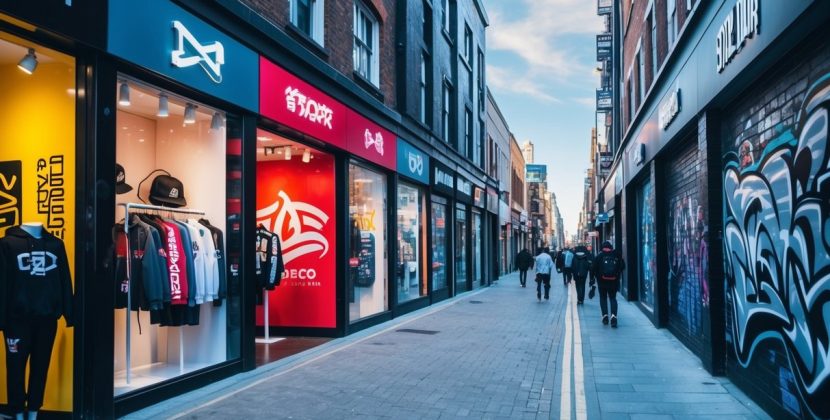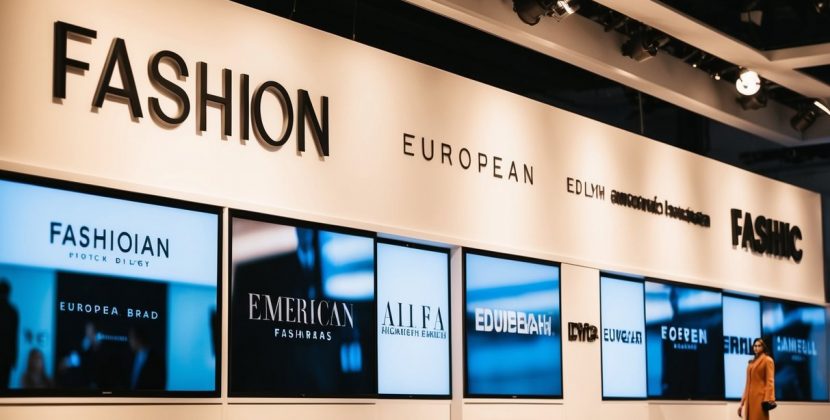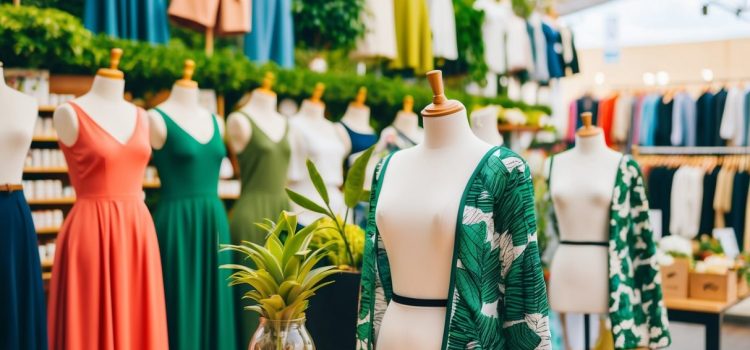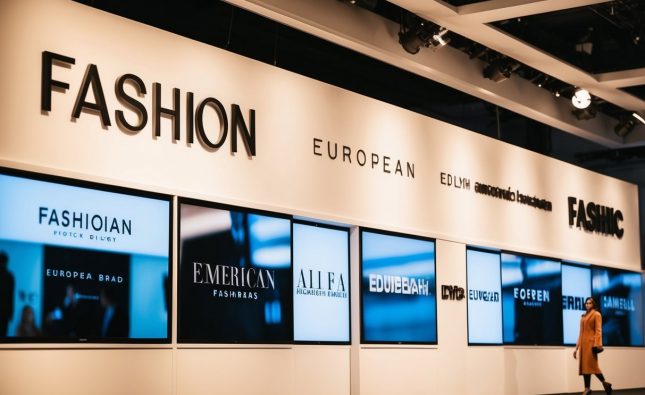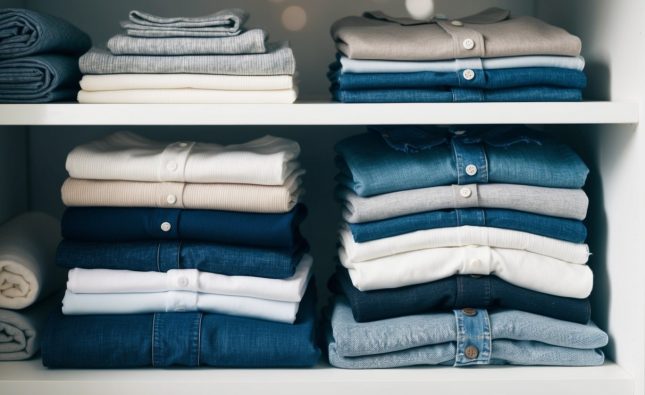
The fashion industry has a significant impact on the environment, making ethical shopping more important than ever. Eco-friendly fashion brands offer sustainable options that minimize harm to the planet while still providing stylish choices. By choosing these brands, consumers can support practices that prioritize fair labor, sustainable materials, and reduced waste.

As awareness of fashion’s environmental footprint grows, many brands are stepping up to meet the demand for transparency and ethical practices. They focus on sourcing materials responsibly, employing ethical manufacturing processes, and promoting longevity in their offerings. This shift not only benefits the planet but also empowers shoppers to make informed choices.
Exploring ethical fashion brands can transform shopping habits from indulgent to conscientious. Each purchase represents a vote for sustainability and ethical production, allowing consumers to align their values with their wardrobes. By embracing these brands, she or he contributes to a more sustainable future for fashion.
Understanding Ethical Fashion
Ethical fashion involves a commitment to sustainable practices within the clothing industry. It encompasses conscious choices made by consumers, designers, and brands to prioritize environmental and social responsibility.
The Rise of Conscious Consumerism
In recent years, there has been a significant shift toward conscious consumerism. Consumers are increasingly aware of the impact of their purchases on the environment and society.
Factors contributing to this rise include:
- Access to Information: Social media and the internet facilitate widespread awareness about ethical practices.
- Impact of Fast Fashion: Awareness of the environmental degradation caused by fast fashion has led consumers to seek alternatives.
This movement has prompted many brands to adopt sustainable practices and transparency in their production processes.
Defining Ethical Fashion
Ethical fashion refers to garments produced with a focus on sustainability, fairness, and transparency. It encompasses several key principles:
- Fair Labor Practices: Ensuring fair wages and safe working conditions for all workers involved in the production chain.
- Sustainable Materials: Utilizing eco-friendly, biodegradable, or recycled materials to minimize environmental impact.
- Transparency: Brands providing information about their supply chains, ensuring that consumers are informed about the origins of their purchases.
Ethical fashion promotes a system that respects both people and the planet, encouraging responsible consumption.
Environmental Impact of Textile Production
The textile industry is a significant contributor to environmental issues. It accounts for:
- Water Pollution: Harmful dyes and chemicals often enter water systems during production processes.
- Waste Generation: The industry produces vast quantities of waste, as fast fashion encourages overproduction and disposal.
Efforts to mitigate these impacts include:
- Reduce, Reuse, Recycle: Brands are adopting practices to minimize waste through recycling programs.
- Sustainable Practices: Techniques such as organic farming and eco-friendly dyeing methods reduce pollution and conserve resources.
Addressing these factors is crucial for fostering a more sustainable fashion industry.
Criteria for Ethical Fashion Brands
Choosing ethical fashion brands involves evaluating several key criteria. Sustainable practices, fair labor conditions, and transparency are essential elements that define a brand’s commitment to ethical standards.
Sustainable Materials and Production Processes
Ethical fashion brands prioritize the use of sustainable materials. This includes organic cotton, recycled polyester, and Tencel, which have lower environmental impacts. Brands often implement eco-friendly production processes that minimize waste and reduce water usage.
Many brands focus on local sourcing to shorten supply chains. By doing so, they lessen carbon footprints and support local economies. Certifications such as GOTS (Global Organic Textile Standard) or OEKO-TEX assure consumers of a brand’s sustainability claims.
Fair Labor Practices
Brands committed to ethical fashion enforce fair labor practices. This ensures that workers receive fair wages and work in safe environments. Ethical brands often provide their employees with benefits such as healthcare and paid leave.
Supply chain transparency is crucial. Brands should disclose where their products are made and share information about workplace conditions. Third-party audits can verify fair labor practices, offering consumers assurance regarding ethical standards.
Transparency and Brand Purpose
Transparency is a vital aspect of ethical fashion. Brands should openly share their sourcing methods, production processes, and labor practices. This openness builds trust with consumers who prioritize ethics in their purchasing decisions.
Many ethical brands have a clear mission or purpose beyond profit. This can include supporting social causes or promoting environmental initiatives. By aligning their business models with positive impact goals, brands attract consumers who value both style and social responsibility.
Top Ethical Fashion Brands for Eco-Friendly Shopping

The pursuit of eco-friendly shopping is increasingly supported by brands committed to ethical practices. Several companies excel in sustainability, fair trade, and local craftsmanship, making them notable choices for conscious consumers.
Innovators in Sustainability
Several brands are pioneering sustainable fashion by innovating their material use and production processes. For example, Patagonia focuses on recycled materials and transparent supply chains. Their business model encourages repair over replacement, promoting durability.
Eileen Fisher emphasizes organic fibers and labor practices that respect worker rights. They also have a take-back program, allowing customers to return worn clothes for reuse or recycling.
Reformation incorporates eco-friendly practices at every production stage, from sourcing to packaging. The brand showcases its sustainability data, providing consumers with insights into their environmental impact.
Brands Supporting Fair Trade and Labor Rights
Brands like TenTree stand out for their commitment to fair trade. They plant ten trees for every item sold, supporting reforestation while ensuring ethical labor practices.
People Tree is a pioneer in ethical fashion, adhering to fair trade guidelines. Their production methods prioritize organic materials, and they work closely with artisan groups to empower communities.
Fair Trade Winds curates products from various artisans worldwide, ensuring that workers receive fair compensation. Their focus on ethical sourcing presents consumers with a range of unique, handcrafted items.
Local and Artisan-Made Apparel
Supporting local artisans fosters community growth and sustainability. Etsy stands out as a marketplace for a multitude of independent designers focused on handmade goods. Customers can find unique clothing while supporting the small business economy.
Amour Vert specializes in locally produced apparel designed with sustainability in mind. Their manufacturing practices minimize waste and emphasize high-quality materials.
Mara Hoffman integrates artisan techniques into contemporary fashion, ensuring that artisans are paid fairly for their craftsmanship. The brand also prioritizes sustainable materials, reinforcing its commitment to eco-conscious practices.
How to Support Ethical Fashion
Supporting ethical fashion involves making conscious choices in shopping and promoting awareness in the community. By adopting mindful habits and engaging in advocacy, individuals can contribute to a more sustainable and fair fashion industry.
Mindful Shopping Habits
When shopping, it is essential to prioritize brands that align with ethical practices. Look for certifications such as Fair Trade, GOTS (Global Organic Textile Standard), or B Corp that indicate sustainable and ethical standards.
Thrift shopping is another effective way to support ethical fashion. Buying second-hand reduces waste and promotes circular fashion. Additionally, consumers can consider investing in high-quality pieces that last longer, minimizing the need for frequent replacements.
Researching brand transparency is crucial. Consumers should check how brands source materials and treat workers. Seeking out local artisans and sustainable brands helps support ethical craftsmanship, fostering community and reducing environmental impact.
Advocacy and Education
Advocacy plays a pivotal role in promoting ethical fashion. Individuals can engage with local communities to raise awareness about the impacts of fast fashion. Organizing workshops or discussions on sustainable practices can foster collective action.
Education is equally important. Consumers can stay informed about ethical fashion trends and practices through online resources, documentaries, and social media. Sharing this knowledge helps spread awareness and encourages others to make informed choices.
Joining or supporting organizations focused on sustainable fashion can amplify one’s impact. Participating in campaigns and petitions can drive change within the industry, encouraging brands to adopt ethical practices.

